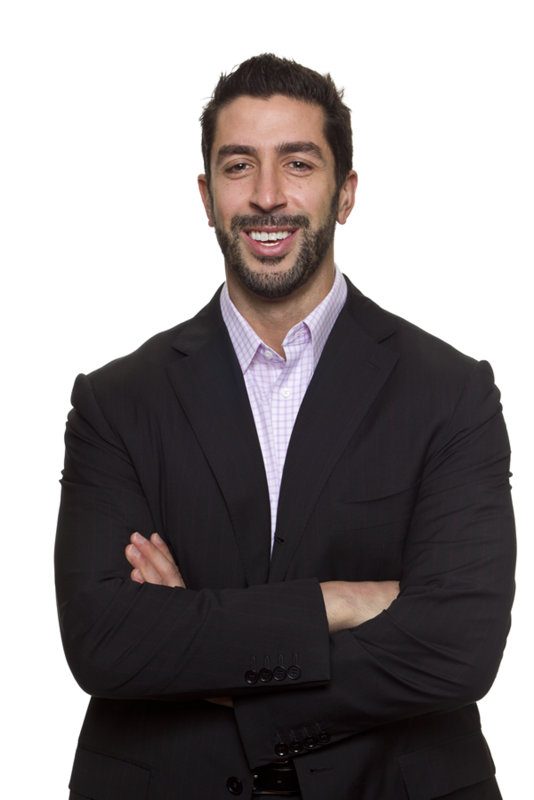
Editor’s Note: Chris Strammiello is the Vice President of Global Alliances for Nuance Communications. Under his leadership, Nuance Document Imaging solutions help healthcare organizations manage patient health information, provide software compatible with electronic health records and remain in compliance with HIPAA.
In the last few years, health care industry developments have increased record-keeping responsibility on physicians, making their job more difficult. A national survey commissioned by The Physicians Foundation revealed that 80 percent of physicians say they are overextended and spend 21 percent of their time on non-clinical paperwork.
The adoption of “meaningful use” of electronic health records (EHRs) has led to a expansion of new responsibilities for doctors. Many have found it challenging to provide their usual high standard of patient care while simultaneously managing new methods to track and record patient health information.
In order to help doctors ease the burden of tedious administrative work and improve performance, let’s look at ways hospitals and health systems can take the load off clinicians and give them added time and freedom to do more of what they love, caring for patients.
1. Optimize EHRs
Frustration with EHRs is a leading cause of doctor dissatisfaction as 60 percent of respondents to The Physicians Foundation survey said EHRs detract from patient interaction. The move to digital records was meant to optimize the medical information collection process, but the technology and how doctors work sometimes do not match up.
Often, doctors are forced to pay attention to their computer screen instead of being solely focused on patients. Also, the programs are not always user friendly and slow down clinicians who are expected to enter all their interactions in excruciating detail. Doctors simply don’t have enough time to spar with computers before a new patient needs to be seen, starting the cycle again.
The main purpose of EHRs was capturing reimbursement, and the doctors’ preferences and tendencies were not factored in during development. Counterintuitive technology is a barrier to treating patients, and to break this barrier, doctors need new tools that work more seamlessly with their processes.
Integrating mobility tools and computer-assisted physician documentation into doctors’ workstations and processes will ease physician frustrations. They will also allow clinicians to spend more time interacting with their patients and less time fighting with their mouse and keyboard.
Related: CHIME Survey Reveals EHR Optimization Named Top Priority for Healthcare CIOs
2. Integrate Artificial Intelligence
Healthcare applications derived from artificial intelligence (AI) are expected to solve macro-scale problems. Many healthcare professionals and researchers look forward to utilizing the value generated from incorporating AI to assist with massive volume of population health, outcome analysis and clinical trial data.
AI doesn’t always solve problems from a 30,000 foot view, though, and some AI-driven technologies are being applied in individual doctors’ offices to help physicians improve care. Near-perfect speech recognition technology is the product of advances in AI. Integrating speech technology with EHRs relieves the burden of manually entering information. A recent EHR survey conducted by HIMSS Analytics, and commissioned by Nuance, found 67.5 percent of respondents’ organizations were adopting new technology and tools to improve clinician satisfaction with EHRs. It also found 24.7 percent of respondents’ organizations were planning to add speech recognition at point-of-care in the coming year.
The capabilities of AI are only starting to be realized, and in the future AI will deliver facts and evidence to doctors in real time. For now it plays a valuable role in helping doctors dictate their sessions, easily and instantly capturing all relevant information.
Related: 10 Ways Artificial Intelligence Could Make Me a Better Doctor
3. Improve Digital Security
Clinical info tech systems are expanding rapidly as healthcare organizations move deeper into the digital realm. Securing these applications is essential as patient data becomes increasingly vulnerable to threats that info tech departments have not previously experienced.
The nature of patient data poses document security issues unique to healthcare, which are made more difficult by the wide range of users accessing that information and the critical impact of federal privacy regulations.
Investing resources in document technologies, like print management and document capture software, add another layer of security to clinical info tech systems. They provide a secure method for tracking and printing documentation at the point of care. These technologies give doctors peace of mind by reducing the risk of healthcare information compliance breaches while also protecting documents from being accessed by those not authorized to view the information.
Incorporating technologies to optimize EHRs and tighten digital security, while also proactively integrating advancements like artificial intelligence into hospitals and health systems will allow physicians to feel what it’s like to have technology work with them for a change.
